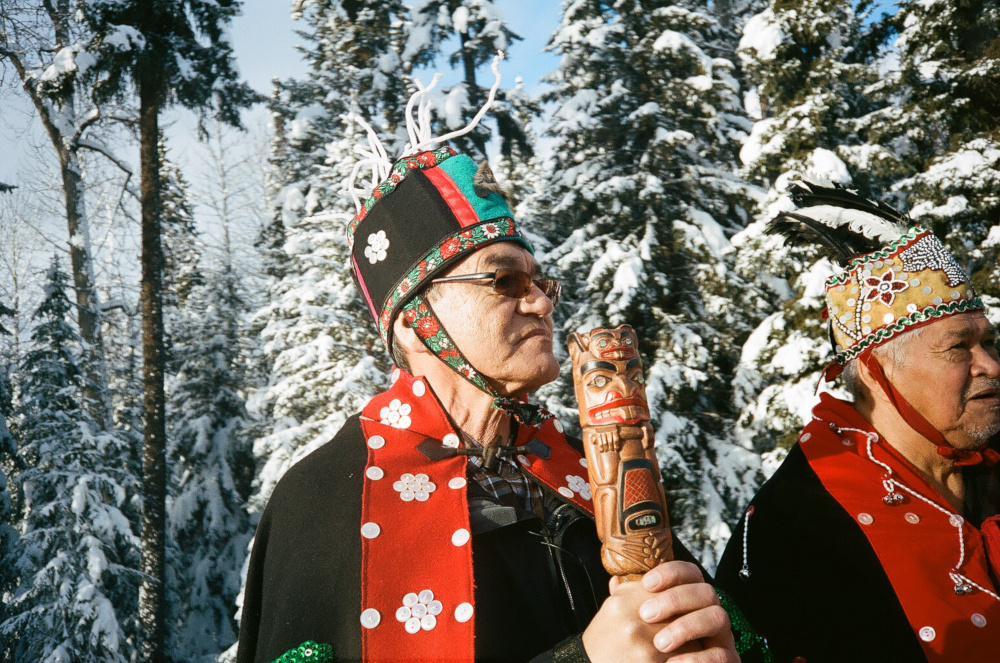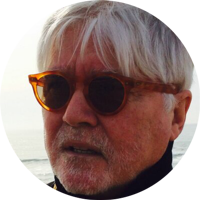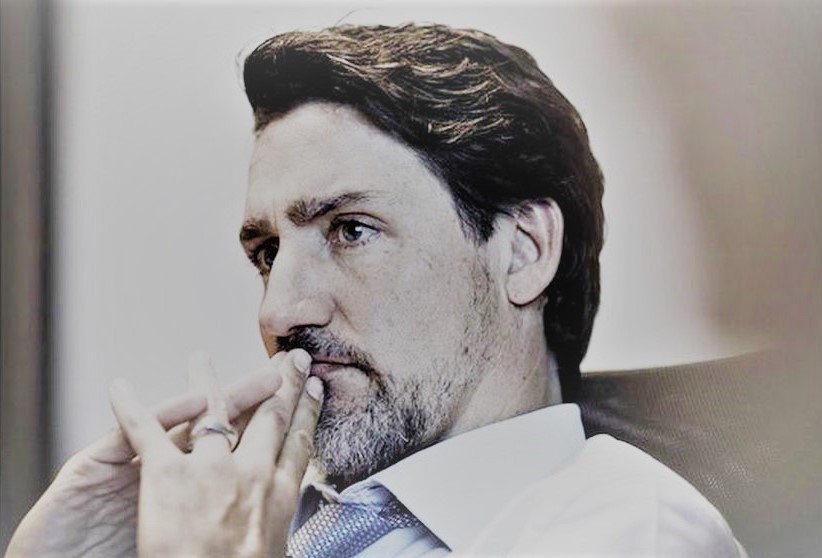If you don’t count beards and doughnuts, Justin Trudeau 2.0 has had a pretty good beginning to the 43rd parliament.
Fate played a big role in that perception.
As the government was just about to enter the crucible of minority governing, the ghastly crash of Ukraine International Air Flight PS752 took over centre stage. All 176 people aboard the doomed aircraft died, including 57 Canadians. All told, 138 of the victims were heading for Canada.
As the tears fell and the anger rose, the prime minister acted with dignity, dispatch, and compassion. His tone struck the right balance of heartbreak and outrage that the accidental shooting down of an airliner full of innocent passengers inspired in everyone.
Trudeau’s actions were equally fitting. Compensating the families of Canadian victims was sensitive and sensible, since no one knows what Iran will ultimately do on that front. Demanding that Iran should pay up after owning up to causing the tragedy was proper.
At the recent state funeral of John Crosbie, Trudeau exhibited the measured, somber maturity appropriate to the gravity of the moment — the passing of an iconic figure who left a profound mark on public life in Canada and Newfoundland and Labrador. Crosbie was a major Conservative player, and Trudeau was wise to see beyond the partisan divide and attend his funeral. Just being there helped detoxify politics.
As luck would have it, Trudeau’s second term also began with a beleaguered President Donald Trump signing the Canada, U.S., Mexico Agreement, or if you are into ugly acronyms, CUSMA. Even the PM’s political rivals, though they may carp about some of the details, have little choice but to support this major accomplishment. The reality is that none of them would have refused to sign such an agreement.
And just as Canada’s parliament was getting back to work, the country inherited a pair of international superstars who resigned their royal jobs and chose this country as home when they are not in the United Kingdom.
In the process, the Duke and Duchess of Sussex scattered a little stardust over Canadian winter, momentarily distracting everyone from some of the less glamorous issues looming ahead. Trudeau neither gushed nor rolled over at the royal migration, again looking prime ministerial.
Then the coronavirus cast the shadow of a deadly pandemic across the globe, now deemed by the World Health Organization to be "a public health emergency of international concern."
Once more, Trudeau’s reaction was calm, measured, and with just three known cases in this country, apparently effective: securing a plane to bring back 126 Canadians who have asked for assistance in repatriation from China’s Hubei province; screening for the virus at Canadian airports; and working with international partners to combat the threat.
The Tory soap opera
Finally, Trudeau began his second chance at governing with a lame-duck leader at the head of the Official Opposition, and a Conservative party consumed with a leadership race that is in chaos.
Despite all the platitudes of a party going forward united, the facts tell a different story.
Andrew Scheer has just been knifed in the front, as Oscar Wilde observed friends are wont to do.
The party’s executive director has been sacked by people who may not have had the authority. Why Stephen Harper’s hasty exit from the Conservative Party Fund?
And now the battle lines are forming between Peter MacKay’s pinkish if not red Tories, and a phalanx of hardcore Harperites.
If Rona Ambrose stays out of the race, don’t be surprised if the final ballot next June pits Harper against MacKay.
Engrossed as the Conservatives are in the fight for the keys to the Tory Kingdom, the PM will be the beneficiary of that divided attention in the House of Commons. Even if Scheer roars, no one will be listening — unless he decides to tell everyone what really happened to him.
But the rosy glow of Trudeau’s new beginning is deceiving.
Despite the look of a different Trudeau, bearded, shirt on and selfie-free, the acid test of whether this is real change, or just better stage management, has yet to be resolved.
British Columbia is at the centre of some of the biggest issues that will reveal whether Trudeau got the message after losing his majority and 27 seats, six of them in B.C., in the last election.
Stand-off on reconciliation road
The early signs are not reassuring. Although the Trudeau government has said that it continues "to walk the road of reconciliation" with Indigenous Peoples, that is a hard sell in B.C.
Opposition by Wet’suwet’en hereditary chiefs to Coastal GasLink’s $6.6-billion pipeline has shown the same old Ottawa: Wet’suwet’en blockades met by RCMP checkpoints — and official silence from the Trudeau government. Paul Manly, Green Party MP for Nanaimo-Ladysmith, has already described Trudeau’s response as "political failure."
A collision on the West Coast is coming between two competing views: A B.C. Supreme Court injunction forbidding the chiefs from denying workers entry to their job site; and the right of the Wet’suwet’en to oppose a project through their territory that they never signed off on.

The PM can’t leave it all to Premier John Horgan to de-escalate the standoff through interlocutors like former NDP MP Nathan Cullen, now a political consultant with StrategyCorp. Given Trudeau’s often-repeated personal interest in the reconciliation file, he will have to walk the walk, after having talked the talk through the megaphone of his fame. A tattoo can only take you so far.
How serious on climate crisis?
One of the reasons the Liberals lost nearly a third of their seats in British Columbia in 2019 is the subpar grade voters gave the PM on his commitment to fight climate change.
With Trudeau’s continued backing for the Trans Mountain Pipeline, a commitment virtually impossible for him to back away from now that he has literally bought in, it is only a matter of time before B.C. protesters, including Indigenous land protectors, confront construction workers on that mega-project.
Does Trudeau send in the Mounties, or maybe even the military, cite white man’s law, or find a way to defuse this ticking time bomb in keeping with a man who says that reconciliation is his most important file?
These particular flash points rest on the bedrock of years of failure on both a new governance structure that would create a third order of government, and the question of land title. No politician of any party has had the courage to face, let alone say and act on that.
Another challenge to the PM’s stated commitment to step up the battle on climate change is fast approaching in Alberta. Will Trudeau greenlight a vast, new bitumen mine in the tarsands by Vancouver-based Teck Resources, a facility "twice the size of Vancouver?"
The $20.6-billion Frontier mine project might put a smile on Alberta Premier Jason Kenney’s face, but it would wipe out any chance of Trudeau meeting Canada’s "net-zero" emission targets by 2050. It would also turn him into an eco-hypocrite faster than Donald Trump can tell a lie.
Since a federal/provincial review panel has already decided that the Frontier mine is good on balance, the ball is now in Trudeau’s court. February is the month of decision. What will it be for environmentalists — a Valentine or a rude awakening?
Given what the federal government has just done on the East Coast, there is at least faint hope that the PM could stop the Frontier mine in the interests of the environment, and stepping away from the further development of fossil fuels.
The Canada-Newfoundland and Labrador Offshore Petroleum Board has just revoked the license of Corridor Resources to drill for oil and gas on the "Old Harry" structure in the Gulf of St. Lawrence.
The 30-kilometre by 10-kilometre area is a potentially rich source of natural gas. It is also part of the Laurentian Channel, the southeast entry point into the Gulf, and an important feeding and migratory area for endangered whales and the leatherback turtle.
The project has attracted passionate opposition because of the potential damage to many species, including the right whale and the blue whale. Activist Mary Gorman broke the good environmental news this way on social media: "The Gulf of St. Lawrence at this moment in history has no petroleum leases. Godspeed, it stays that way."
Which way on Huawei?
Although Trudeau faces key identity-forging decisions in B.C. and the West, there are several critical issues nationally that will also determine his ultimate fate as a second term, minority government prime minister.
NDP Leader Jagmeet Singh wants action now on a national pharmacare program. So far, the government has dithered. They are consulting with the provinces; they are looking at studies. One of those studies, the Hoskins Report, talks about a pharmacare program by 2027.
Trudeau promised during the election to ban assault rifles, but now his Public Safety Minister Bill Blair, says there is "complexity" involved in making good on that pledge, and no firm timetable has been established. The same goes for the government’s plan to allow municipalities to ban handguns — if they so choose.
The Liberals are also wobbling on whether or how much to allow the Chinese company Huawei to participate in Canada’s 5G mobile network. Initially, that was supposed to be a national security decision. If Canada stuck with its Five Eyes Security partners, the answer would be no — or at least banning Huawei from core network tech.
But with Canadians Michael Spavor and Michael Kovrig detained in China in a little less splendour than Meng Wanzhou is being held under mansion-arrest in Vancouver, the calculus has changed a little.
In addition to security considerations, the Trudeau government will now take "geo-political" considerations into account. One way or the other, this decision will have huge ramifications for Canada’s relationship with both the United States and China. And for Trudeau.
Before someone wins the Stanley Cup, Canadians will have a pretty good idea of whether the PM has changed, or the Shiny Pony has just learned a few new tricks.
Just watch what he does, not what he says. ![]()
Read more: Politics, Federal Politics

















Tyee Commenting Guidelines
Comments that violate guidelines risk being deleted, and violations may result in a temporary or permanent user ban. Maintain the spirit of good conversation to stay in the discussion.
*Please note The Tyee is not a forum for spreading misinformation about COVID-19, denying its existence or minimizing its risk to public health.
Do:
Do not: